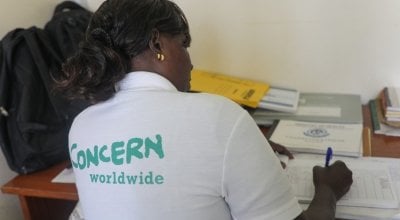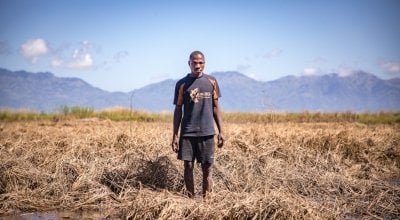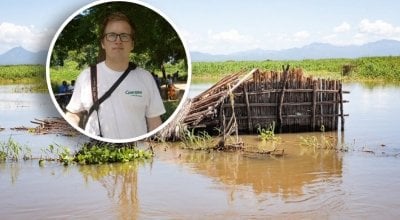
Read our 2023 annual report

Knowledge Hub
Skills to succeed in Zambia with Accenture and Concern Worldwide
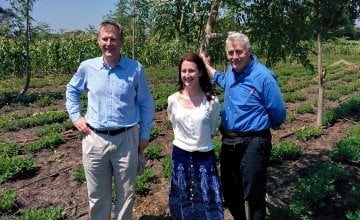
Accenture’s Carmel Halpin writes about her recent trip to Zambia to observe the benefits provided to farmers by Concern’s conservation agriculture programme there.
In February, I had the amazing opportunity to travel to Zambia with the Accenture Ireland Country Managing Director Alastair Blair, and Concern CEO Dominic MacSorley, to visit beneficiaries of Concern’s conservation agriculture project.
Accenture funds this project, and the purpose of this visit was for us to observe the results of this over the past four years.
Accenture partnership
Accenture Ireland has had a long-standing partnership with Concern.
This was formalised in 2010 by an initial global giving grant of US$1.59 million over three years, with an additional grant of US$3.23 million in 2013.
These grants were to fund Concern’s conservation agriculture programmes in Zambia and Malawi.
Helping farmers
Farming is the main employment opportunity in both countries.
Concern works with poor, and very poor, small-holder farmers living in rural, isolated and under-developed areas who lack access to the training, information, infrastructure and inputs necessary to improve production, income and food security.
The conservation agriculture programme gives farmers the skills to move from bare subsistence agriculture to income-generating farming.
Remote locations
Concern works in Western Province in Zambia, and we spent a full day travelling the 11 hour 700km journey there from the capital Lusaka.
The following day we traveled out to the remotest place I have ever been to get to beneficiary farmers. There was no road, just grass plains and lots of sand.
When Concern says they work with the poorest of the poor and the hardest to reach people, they are serious.
Oliya Yusiko
After our journey, we met Oliya Yusiko, a female farmer using conservation agriculture techniques in her field.
She demonstrated how it all works – marking the field with rope, digging basins, applying organic matter, planting the seeds and finally mulching to keep the soil cool and moist.
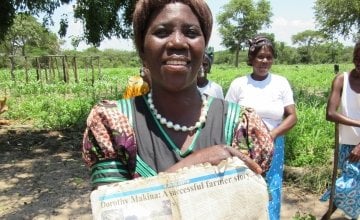
Dorris Makina
We also met Dorris Makina, one of the most successful conservation agriculture farmers.
She and other women welcomed us to their village, dancing and singing a song about conservation agriculture when we arrived.
She employs 20 people and sells her produce to farmers and at the local market.
Dorris meets ten small farmers every week and teaches them about the importance of crop rotation and how best to grow crops using conservation agriculture methods.
She cooked us lunch in her house and proudly showed us some of her produce and the awards she has won. I left feeling inspired by her progress and success and hoping that Oliya would also follow in her footsteps in time.
The benefits
Results from phase one showed that farmers who adopted conservation agriculture techniques had increased yields, increased resilience to adverse climate conditions, and increased food security.
Women’s workloads were reduced and their social status increased through their participation and knowledge of conservation agriculture.
In the first phase, 6,400 farmers were equipped with conservation agriculture skills.
In the second phase of the project, over 12,000 farmers are benefitting from Accenture’s funding of conservation agriculture in both Zambia and Malawi.
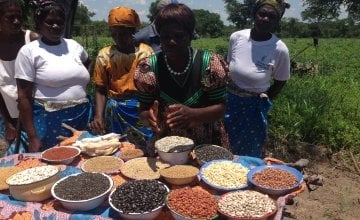
Food security
As I reflect on all that we saw during our few days in Zambia, I am struck by the levels of poverty we came across and the farmers who are living from day to day trying to grow enough to feed their families.
However, I am heartened by the fact that these people are being reached by Concern and many of them are making real progress through conservation agriculture, increasing their yields and thus their food security.
The soil is so sandy throughout the Western Province that it’s amazing anything can actually grow there.
And yet I was inspired by farmers such as Dorris and Oliya who are seeing the benefits of conservation agriculture.



